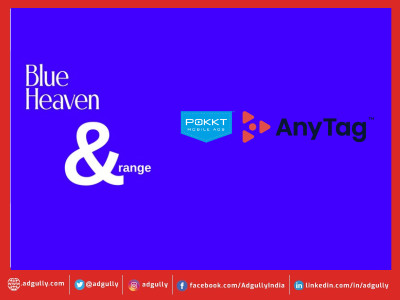Women are wired to handle crises effectively, decisively & resiliently: Rubeena Singh
We, at Adgully, have always saluted and honoured women managers and leaders across diverse fields. W-SUITE is a special initiative from Adgully that has been turning the spotlight on some of the most remarkable women achievers in M&E, Advertising & Marketing, PR & Communication industry. In the refurbished series, we seek to find out how women leaders have been managing their teams and work as well as how they have been navigating through the toughest and most challenging times brought about by the global pandemic.
Rubeena Singh joined Josh as the Country Manager a few months back. She has an illustrious career, building and scaling media businesses across digital, print and broadcast. She started her career with Star TV, working with the sales team, but spent a large part of her career at Network18, where she spearheaded the launch of CNBC Awaaz, Forbes India and Moneycontrol, her first tryst with the world of digital media. Prior to joining Josh, Singh was CEO of iProspect India, a digital media company.
In conversation with Adgully, Rubeena Singh, Country Manager, Josh, speaks about what makes women better at handling crises, maintaining work-life balance during the pandemic times, taking risks as a woman leader and more.
How do you think the role and scope of women leaders has widened in the post-pandemic world?
We were thrown into the deep end of uncharted territory as the pandemic disrupted our work and personal lives and confronted us with a whole set of problems that were previously unknown to us. Trying to maneuver through actively developing situations, where we knew as little as our employees did, was tricky, especially when they look towards you for support and guidance.
The pandemic redefined what it has meant to be a leader and called for a certain dynamism, widening our role and scope. As we navigated through these ambiguous times, the main challenge was ensuring our employees were enabled to work in order to prevent a disruption of services, all the while keeping their health and safety at the forefront. As life moved online and physical interactions reduced significantly, a certain unavoidable disconnect developed, which had to be overcome to continue building the organisational culture and inculcating the company value and ethos. And most importantly, in times as trying and stressful as these, ensuring the mental well-being of our teams and employees was and is of utmost importance to enable them to stay highly motivated and resilient at all times.
The rapid transition to digital, an uncertain economic landscape, charting unknown waters, working from home – how have you been navigating during the COVID-19 times? How are you maintaining work-life balance in the new normal?
Finding and achieving the perfect work-life balance has always been a challenge, a challenge that became more pronounced with the pandemic. As our homes became our offices, the lines between work and personal life blurred. The concept of personal time has ceased to exist.
There are a few positives however, with time saved on the work commute and the ability to conduct multiple meetings virtually. While initially, this was manageable, with the situation dragging on, the fatigue has started to kick in. Not being able to meet clients and colleagues has been a challenge, and with work hours becoming increasingly fluid, the work never stops.
Trying to set a fixed scheduled time for work, keeping zero device time slots, especially during meals, dressing up differently for WFH and time off are smalls steps I take in order to strike a balance between my personal and professional life. This being said, I am full of gratitude that my work allows me to work remotely in the safety of my home.
Multiple studies have shown how women leaders performed better during the COVID-19 crisis. According to you, what makes women the best in crisis management?
Women are wired to handle crises effectively, decisively and resiliently. What has historically been used as a disadvantage against us, is now playing to our strengths as we navigate through the nuances of the pandemic more seamlessly. Years of balancing work and home has equipped us with the ability to multitask more efficiently, be more patient and handle and cope with stress better. Most important is our inherent ability to demonstrate empathy and put people first in times as stressful as these, where qualities like compassion and humanity are needed the most.
What are the five most effective lessons that you have learned as a woman leader?
- Be yourself - Don’t try to fit in. Although women are frequently advised to put on a show of confidence and “fake it till they make it”, evidence shows that one of the greatest strengths of women is being self-aware and the fact they bring a different leadership style.
- Communicate - All of us women have a voice, but whether or not we use it in the workplace is another story. The way I found my voice was first remembering that there’s a reason that I have a seat at the table.
- Advocate for yourself - If you don’t advocate for yourself in your career when it comes to your opportunities, no one else will. So, never hesitate to ask for more…that’s the way I have grown in my career!
- Take risks - To move the needle, you have to make a big bets – but never rash – always based on a careful study of the outcomes.
- Find your purpose and follow it through
Gender sensitivity and inclusion in the new normal – how can organisations effectively encourage and groom women leaders in challenging times?
The pandemic has proven the superior leadership potential that women possess. The greatest thing that organisations can do is give women the room for growth without reproaching them for fulfilling their duties at home. There needs to be acceptance that while work has moved from office to home, that doesn’t mean that the home is now the office. Now, more than ever, we must be respectful of personal time. Offering flexible schedule options and leaving the door open so, if talented women do have to step away, they can come back once the crisis tides over, are some things organisations should think of.
The pandemic is requiring us to reimagine the workplace – both now, and even longer term into the future.
Companies can leverage the crisis to transform workplace culture in order to keep women in leadership. Those that are able to do so will not only be helping women, but also benefit from increased loyalty, innovation and profits down the road.


















Share
Facebook
YouTube
Tweet
Twitter
LinkedIn